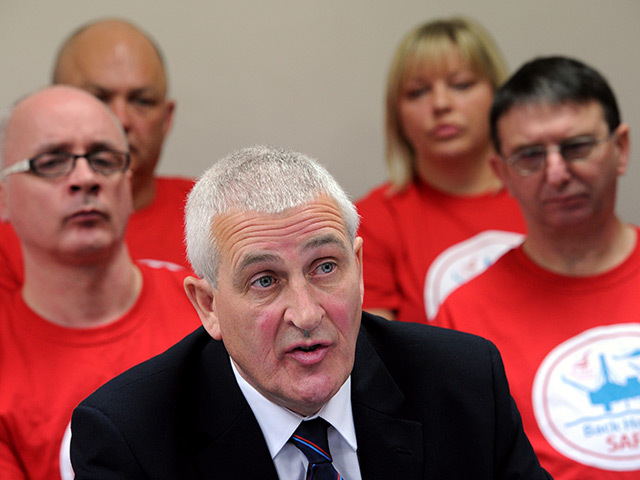
Unite the trade union has handed a petition to Oil & Gas UK (the offshore industry’s representative body) demanding safer helicopter flying over the North Sea.
Just what a trade union is supposed to do, isn’t it? Campaign for members? Particularly when twenty offshore workers have been killed in the UK sector since 2009. The anxiety is real.
The Unite petition alleges insufficient effort is being made to improve helicopter safety. It calls for a list of improvements including reconfiguration of seats, alterations to emergency lighting, etc.
Curious. These changes are either already implemented or are in the process of being so. Curious too that Unite is a partner with Oil & Gas UK on the Step Change Helicopter Safety Steering Group (HSSG), the cross-industry body that exerts a policy remit over North Sea helicopter safety.
Unite, in effect, petitioned itself.
A Unite full time official sits on the HSSG and, by all accounts, makes a credible contribution having had direct involvement with the issue over 25 years.
It was not he, but another Unite apparatchik, who instigated the petition. The Unite petitioners hung around the heliports over a two-week period collecting signatures. The lads, genuine enough, were not themselves offshore workers but the Unite Leverage Squad of Grangemouth Refinery dispute fame.
Their giant inflatable rat mascot didn’t show at the heliports, but the ill-informed leaflets they were obliged to hand out to offshore workers boarding helicopters smelled unmistakably of the real thing: a cack-handed recruitment stunt intended to piggy-back genuinely held anxieties.
Trade union officials have over the years occasionally found themselves sitting on this or that industry committee having a degree of oversight over some aspect of offshore safety, despairing that their presence was little more than window dressing to give an illusion of worker consultation.
The evidence is that the HSSG operates outside this well-used template. Trade union input is substantive, is given due weight and interests of offshore workers seem genuinely represented, so far. Alongside the Unite official on the HSSG is the organizer of RMT’s offshore energy section (aka OILC).
All UKCS helicopter companies are represented on the HSSG. While corporate policy will forever be for each company to decide, during this ongoing helicopter safety crisis the companies have unfailingly acceded to every request and directive issued by the HSSG.
For example, one manifestation of HSSG’s oversight was the restriction on the Puma L2 model. In the UK sector, pending the second AAIB Report, it was in service only for freight carrying. The same aircraft was unrestricted in the Norwegian, Dutch, Danish and German sectors of the North Sea.
In the meantime, investigations by the AAIB and the CAA are ongoing into the series of UKCS helicopter incidents and, on 6 January 2014, the Fatal Accident Inquiry commenced in Aberdeen to examine the Super Puma crash of April 2009 in which 16 men died. The HSSG states its intention to oversee the implementation of all recommendations made.
Lessons to be learned, in order to better represent offshore workers?
Unite is a big bureaucrat-run union, a hodge-podge amalgam of half a dozen or so predecessor unions. Some were democratically run by members, others by the bureaucrats. An outsider will always have difficulty getting to grips with local realities and this applies when a bureaucrat is parachuted into a unique sector such as offshore oil and gas. That said, big bureaucracies might occasionally make a gain for workers they purport to represent and when this happens the gain must be consolidated and built upon, not squandered.
The presence and significantly raised game of the TUs on the HSSG is an important gain for offshore workers. The Unite petition was a squander.
PS. Try the OILC website run by offshore workers who know what they are talking about.… and this press release is worth a read.
Ronnie McDonald founded the former Offshore Industry Liaison Group in the wake of the Piper Alpha Disaster of 1988.It later became the union OILC, which since 2008 has been a part of the mega-union RMT
